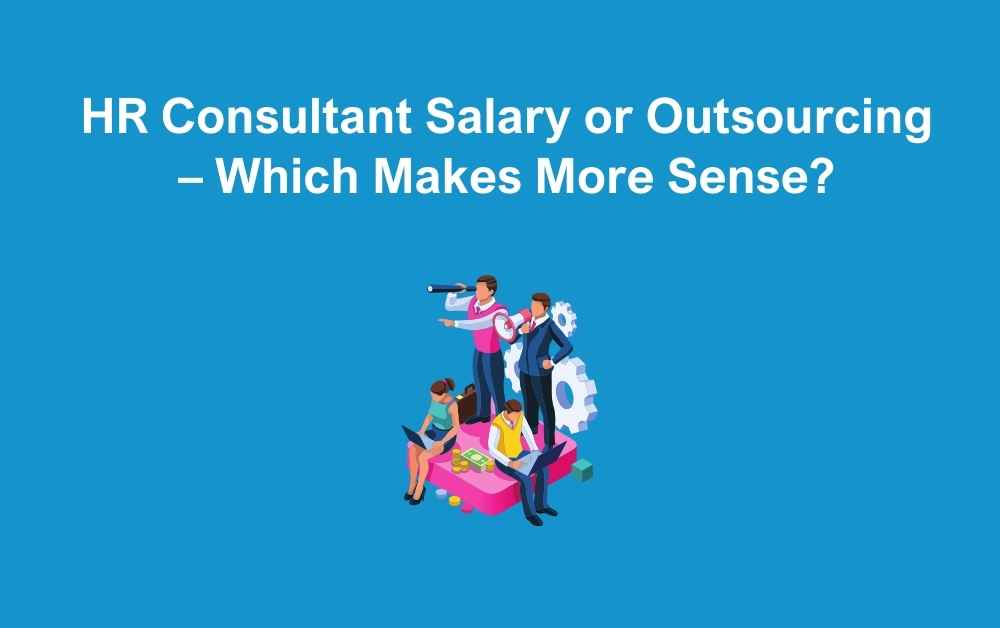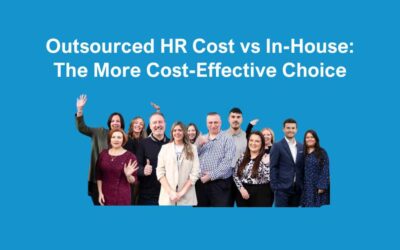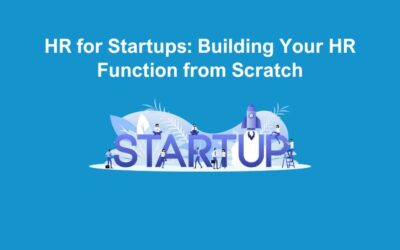HR consultant salary is something many business owners start thinking about as their company grows and they need more reliable HR support. It might seem like hiring an in-house HR consultant is the obvious next step—but is it really the best option? With rising salary expectations, hidden employment costs, and the challenge of relying on just one person for everything HR-related, it’s worth considering whether outsourcing could offer better value and flexibility. In this article, we break down the real cost of a salary and explain why more businesses are choosing to outsource instead.
What Does an In-House HR Consultant Actually Cost?
According to Indeed, on average, a HR Consultant salary in the UK is £36,413 per year. The highest paying cities in the UK include:
- Reading: £48,054
- London: £47,449 per year
- Edinburgh: £40,994
- Leeds: £35,571
- Manchester: £33,960
It’s important to keep in mind that salary is only part of the overall cost of employing someone. Additional expenses such as pension contributions, National Insurance, training, holiday entitlement, and sick leave also need to be factored in.
Beyond Salary – Hidden Costs of an In-House Hire
While the headline salary might seem manageable, the true cost of bringing an HR consultant in-house extends far beyond their monthly pay. Employers often overlook the additional financial and operational burdens that come with employing someone directly. Here are some of the key hidden costs addition to a HR Consultant salary:
Recruitment Costs
If you take the decision to advertise through an agency, this can be expensive. This is due to agencies typically charging fees for their services on top of the actual advertising costs. These fees can vary depending on the level of support they offer, such as creating job adverts, managing applications, and shortlisting candidates. Even if you decide to take this on yourself, you will still need to pay fees to publish your job advert to popular job boards.
Onboarding and Development Costs
Once you’ve hired someone, the initial setup doesn’t stop there. Time needs to be invested in onboarding, training, and familiarising them with your systems and processes. There’s also the ongoing cost of professional development to keep their skills and knowledge up to date—particularly important in HR, where legislation and best practices change frequently. These costs can be difficult to predict and rarely show up in a straightforward budget.
Cover During Absence or Turnover Risks
An in-house hr consultant salary is only one person. If they’re off sick, on holiday, or leave the business entirely, you could be left without any HR support. Not only does this create gaps in compliance and employee support, but it may also mean having to bring in expensive interim support at short notice. Turnover, especially in specialist roles, is a risk that can create disruption and further recruitment costs down the line.
Why More Employers Are Choosing to Outsource HR
With the increase in employer national insurance contributions and other economic pressures, many businesses have been forced to look at ways to bring their costs down. This has meant engaging in outsourced services to maintain a high standard of support without the unmanageable fees. Here’s the main benefits of making the switch:
Flexibility and Scalability
One of the key benefits of outsourcing HR instead of a hr consultant salary is the ability to scale support up or down as your business evolves. Whether you’re onboarding a wave of new employees, dealing with an unexpected HR issue, or planning for long-term growth, outsourced HR gives you the flexibility to access the right level of support when you need it—without committing to a fixed salary or long-term contract. This is especially valuable for seasonal businesses or those going through periods of change.
Access to a Team of Experts (Not Just One Person)
Hiring one in-house HR consultant gives you access to a single skillset—but what happens when a complex issue arises outside their area of expertise? When you outsource instead of opting for an in-house HR Consultant salary, you’re tapping into a whole team of professionals with diverse experience across employment law, recruitment, employee relations, performance management, and more. This means you get faster answers, broader insight, and specialist guidance across the board—without the cost of hiring multiple people.
Consistency and Compliance Across Changing Regulations
Employment law in the UK changes frequently, and keeping up with new legislation, case law, and best practice takes time and expertise. A good outsourced HR provider stays on top of these developments for you, ensuring that your policies, processes, and decisions remain compliant. This helps you avoid costly mistakes, tribunal claims, or reputational risks, and gives you peace of mind that your business is protected.
Cost Comparison: In-House vs Outsourced HR
If the UK average HR Consultant salary is £36,413 per year, the additional costs discussed above can push the true cost well beyond this.
By contrast, outsourcing HR services offers a much more flexible and scalable model. For a fraction of the cost, you gain access to a team of experienced professionals who can provide support across a wider range of issues, from day-to-day employee matters to strategic planning and compliance.
The HR Booth Retainer Costs
At The HR Booth, we offer retainer packages that start from just £159 a month for businesses with up to 10 employees, to £519 for businesses with 151 to 200 employees. You can take a look at our full list of prices on our website. Our costs not only ensures efficiency but also means you’re never paying for unused capacity or scrambling for cover when someone is off sick.
Pay as you go with The HR Booth
We also offer a pay as you go service that provides expert HR support as and when you need it. The costs include:
Hourly rate:
- £80 in person
- £65 remotely
Daily Rate
- £600
Ultimately, outsourcing allows you to control costs, reduce risk, and access higher-level expertise—without the long-term financial commitment of an in-house HR consultant salary.
Conclusion – Rethinking the HR Investment
Choosing how to manage HR in your business is a strategic decision, not just a financial one. While hiring an in-house HR consultant might seem like a step forward, the ongoing salary, employment costs, and resource limitations can quickly outweigh the benefits—especially for small to mid-sized businesses.
Outsourced HR offers a smarter alternative. It gives you access to a wider pool of expertise, up-to-date knowledge of employment law, and flexible support that scales with your business. Rather than relying on one person to manage everything, you benefit from a team that can handle day-to-day issues, strategic planning, and compliance – often at a fraction of the cost of a full-time hire.
If you’re weighing up the cost of a HR consultancy salary or starting to explore your options, now is the time to consider how outsourcing could work for you. The right provider can feel like an extension of your team—without the overhead.
Ready to take the next step?
Get in touch today for a free consultation and find out how outsourced HR support can give your business the confidence and compliance it needs to grow.







